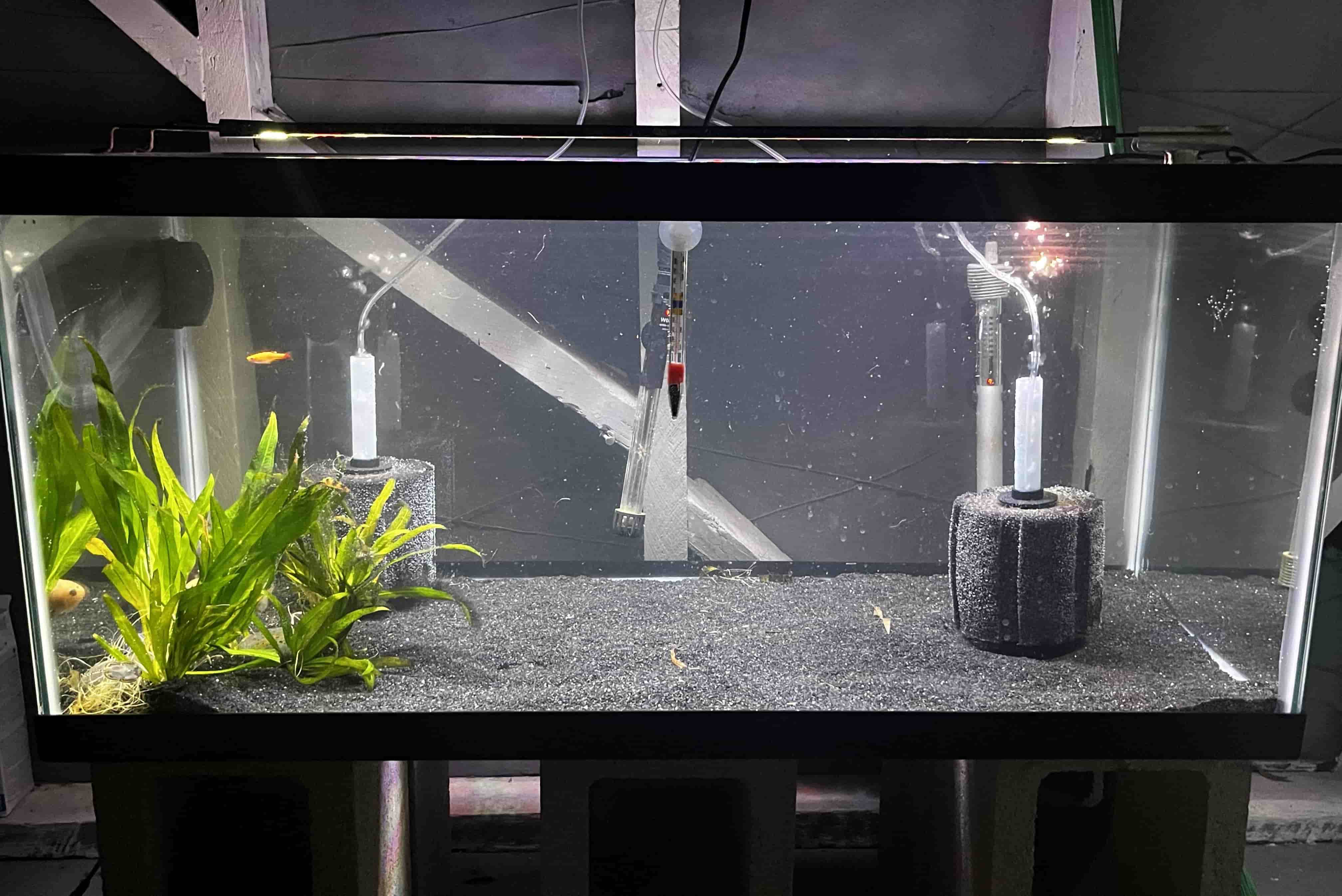
Are you curious about how to keep your aquarium water crystal clear without breaking the bank? Sponge filters might be the answer you're looking for. These simple yet effective devices are a favorite among fish enthusiasts for their affordability and efficiency. But what exactly makes sponge filters so special? In this blog post, we'll dive into 23 fascinating facts about sponge filters that will help you understand why they are a must-have for any aquarium setup. From their unique design to their role in maintaining a healthy aquatic environment, you'll learn everything you need to know to make an informed decision. Ready to get started? Let's explore the world of sponge filters together!
Key Takeaways:
- Sponge filters are a cost-effective and low-maintenance option for aquariums, providing excellent biological filtration and gentle water flow ideal for breeding tanks.
- Setting up and maintaining a sponge filter is straightforward, offering energy-efficient, versatile, and safe filtration for various tank sizes and types.
What Are Sponge Filters?
Sponge filters are a popular choice for aquarium enthusiasts. They provide biological filtration, which is crucial for maintaining a healthy aquatic environment. Here are some fascinating facts about sponge filters.
-
Sponge filters use air pumps to draw water through a sponge, trapping debris and providing a surface for beneficial bacteria to grow.
-
They are ideal for breeding tanks because they offer gentle filtration that won't harm delicate fry or eggs.
-
Sponge filters are cost-effective. They are generally cheaper than other types of filters and have low maintenance costs.
-
They provide excellent biological filtration. The sponge offers a large surface area for beneficial bacteria to colonize, which helps break down harmful ammonia and nitrites.
-
They are easy to clean. Simply rinse the sponge in aquarium water to remove debris without killing the beneficial bacteria.
Benefits of Using Sponge Filters
Sponge filters offer numerous benefits that make them a favorite among fish keepers. Let's explore some of these advantages.
-
They are energy-efficient. Sponge filters use air pumps, which consume less electricity compared to power filters.
-
They are versatile. Suitable for various tank sizes and types, including freshwater and saltwater aquariums.
-
They promote oxygenation. The air bubbles created by the air pump increase oxygen levels in the water, benefiting fish and plants.
-
They are safe for small fish and shrimp. The gentle filtration prevents small creatures from being sucked into the filter.
-
They are quiet. Sponge filters produce minimal noise, making them ideal for bedrooms or quiet spaces.
How to Set Up a Sponge Filter
Setting up a sponge filter is straightforward. Here are some key points to consider.
-
Choose the right size. Ensure the sponge filter is appropriate for your tank size to provide adequate filtration.
-
Connect to an air pump. Attach the sponge filter to an air pump using airline tubing.
-
Place the filter in the tank. Position the sponge filter in a corner or along the back wall of the aquarium.
-
Adjust the airflow. Use an air valve to control the flow rate, ensuring it is not too strong for your tank inhabitants.
-
Monitor the filter. Regularly check the sponge filter to ensure it is functioning correctly and clean it as needed.
Maintenance Tips for Sponge Filters
Proper maintenance is essential for keeping your sponge filter effective. Here are some tips to help you maintain it.
-
Clean the sponge regularly. Rinse the sponge in aquarium water every 2-4 weeks to remove debris.
-
Avoid using tap water. Tap water can contain chlorine, which can kill beneficial bacteria. Always use dechlorinated water for cleaning.
-
Check the air pump. Ensure the air pump is working correctly and replace it if necessary.
-
Inspect the airline tubing. Look for any kinks or blockages that could restrict airflow.
-
Replace the sponge when needed. Over time, the sponge may degrade and lose its effectiveness. Replace it every 6-12 months.
Common Misconceptions About Sponge Filters
There are some misconceptions about sponge filters that need clarification. Let's address a few of them.
-
They are not just for small tanks. Sponge filters can be used in large tanks as well, often in combination with other filtration systems.
-
They do not provide mechanical filtration. While they primarily offer biological filtration, sponge filters also trap debris, providing some mechanical filtration.
-
They are not difficult to maintain. Sponge filters are actually one of the easiest types of filters to maintain, requiring minimal effort to keep them running smoothly.
Final Thoughts on Sponge Filters
Sponge filters are simple yet effective tools for maintaining healthy aquariums. They provide excellent biological filtration, making them ideal for tanks with delicate fish or shrimp. These filters are easy to clean and maintain, ensuring your tank stays in top shape without much hassle. Plus, they’re budget-friendly, which is always a plus.
Whether you’re a beginner or a seasoned aquarist, sponge filters offer a reliable way to keep your aquatic environment clean and safe. They’re versatile, working well in various tank sizes and setups. With their gentle water flow, they’re perfect for breeding tanks and fry rearing.
Incorporating a sponge filter into your aquarium setup can make a significant difference in water quality and overall fish health. So, if you haven’t tried one yet, it might be time to give sponge filters a shot. Your fish will thank you!
Frequently Asked Questions
Was this page helpful?
Our commitment to delivering trustworthy and engaging content is at the heart of what we do. Each fact on our site is contributed by real users like you, bringing a wealth of diverse insights and information. To ensure the highest standards of accuracy and reliability, our dedicated editors meticulously review each submission. This process guarantees that the facts we share are not only fascinating but also credible. Trust in our commitment to quality and authenticity as you explore and learn with us.
